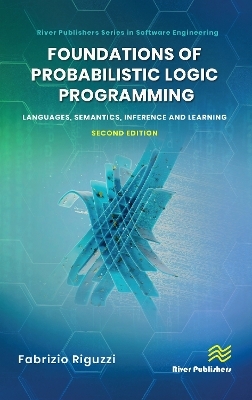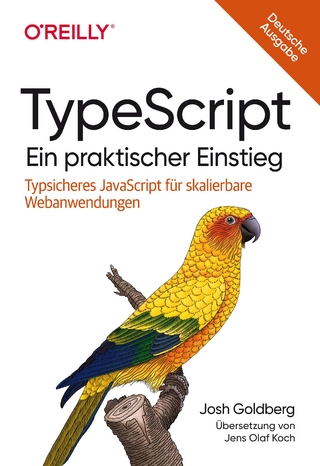
Foundations of Probabilistic Logic Programming
River Publishers (Verlag)
978-87-7022-719-3 (ISBN)
Since its birth, the field of Probabilistic Logic Programming has seen a steady increase of activity, with many proposals for languages and algorithms for inference and learning.
This book aims at providing an overview of the field with a special emphasis on languages under the Distribution Semantics, one of the most influential approaches. The book presents the main ideas for semantics, inference, and learning and highlights connections between the methods.
Many examples of the book include a link to a page of the web application http://cplint.eu where the code can be run online.
This 2nd edition aims at reporting the most exciting novelties in the field since the publication of the 1st edition. The semantics for hybrid programs with function symbols was placed on a sound footing. Probabilistic Answer Set Programming gained a lot of interest together with the studies on the complexity of inference. Algorithms for solving the MPE and MAP tasks are now available. Inference for hybrid programs has changed dramatically with the introduction of Weighted Model Integration.
With respect to learning, the first approaches for neuro-symbolic integration have appeared together with algorithms for learning the structure for hybrid programs.
Moreover, given the cost of learning PLPs, various works proposed language restrictions to speed up learning and improve its scaling.
Fabrizio Riguzzi is Full Professor of Computer Science at the Department of Mathematics and Computer Science of the University of Ferrara. He was previously Associate Professor and Assistant Professor at the same university. He obtained his Masters and PhD in Computer Engineering from the University of Bologna. Fabrizio Riguzzi is Editor in Chief of Intelligenza Artificiale, the official journal of the Italian Association for Artificial Intelligence. He is the author of more than 200 peer reviewed papers in the areas of machine learning, inductive logic programming and statistical relational learning. His aim is to develop intelligent systems by combining in novel ways techniques from artificial intelligence, logic and statistics.
1. Preliminaries 2. Probabilistic Logic Programming Languages 3. Semantics with Function Symbols 4. Hybrid Programs 5. Semantics for Hybrid Programs with Function Symbols 6. Probabilistic Answer Set Programming 7. Complexity of Inference 8. Exact Inference 9. Lifted Inference 10. Approximate Inference 11. Non-Standard Inference 12. Inference for Hybrid Programs 13. Parameter Learning 14. Structure Learning 15. cplint Examples 16. Conclusions
| Erscheinungsdatum | 10.07.2023 |
|---|---|
| Zusatzinfo | 11 Tables, black and white; 22 Illustrations, color; 75 Illustrations, black and white |
| Verlagsort | Gistrup |
| Sprache | englisch |
| Maße | 156 x 234 mm |
| Gewicht | 1420 g |
| Themenwelt | Mathematik / Informatik ► Informatik ► Programmiersprachen / -werkzeuge |
| Mathematik / Informatik ► Informatik ► Software Entwicklung | |
| Mathematik / Informatik ► Informatik ► Theorie / Studium | |
| ISBN-10 | 87-7022-719-5 / 8770227195 |
| ISBN-13 | 978-87-7022-719-3 / 9788770227193 |
| Zustand | Neuware |
| Informationen gemäß Produktsicherheitsverordnung (GPSR) | |
| Haben Sie eine Frage zum Produkt? |
aus dem Bereich


